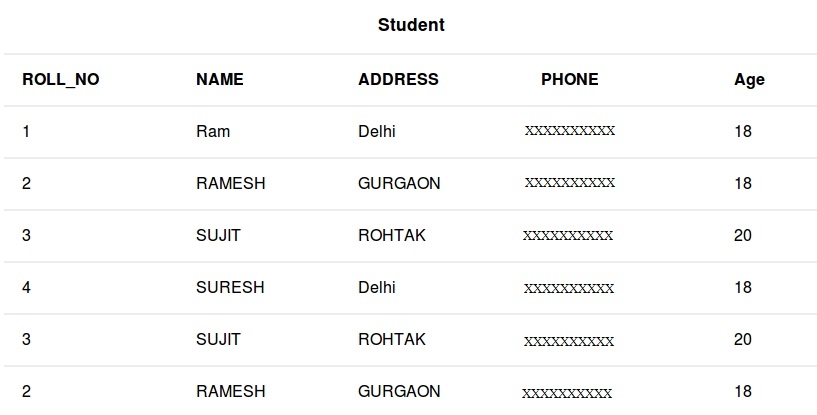Declaring Variables
int myAge;
String myName;
boolean isTired;
Variable definitions can go anywhere in a method definition (that is, anywhere a regular Java
statement can go), although they are most commonly declared at the beginning of the definition
before they are used:
public static void main (String args¸]) {
int count;
String title;
boolean isAsleep;
...
}
You can string together variable names with the same type:
int x, y, z;
String firstName, LastName;
You can also give each variable an initial value when you declare it:
int myAge, mySize, numShoes = 28;
String myName = “Laura”;
boolean isTired = true;
int a = 4, b = 5, c = 6;
If there are multiple variables on the same line with only one initializer (as in the first of the
previous examples), the initial value applies to only the last variable in a declaration. You can also
group individual variables and initializers on the same line using commas, as with the last
example, above.
Local variables must be given values before they can be used (your Java program will not compile
if you try to use an unassigned local variable). For this reason, it’s a good idea always to give local
variables initial values. Instance and class variable definitions do not have this restriction (their
initial value depends on the type of the variable: null for instances of classes, 0 for numeric
variables, ‘\0’ for characters, and false for booleans).
Notes on Variable Names
Variable names in Java can start with a letter, an underscore (_), or a dollar sign ($). They cannot
start with a number. After the first character, your variable names can include any letter or
number. Symbols, such as %, *, @, and so on, are often reserved for operators in Java, so be careful
when using symbols in variable names.
int myAge;
String myName;
boolean isTired;
Variable definitions can go anywhere in a method definition (that is, anywhere a regular Java
statement can go), although they are most commonly declared at the beginning of the definition
before they are used:
public static void main (String args¸]) {
int count;
String title;
boolean isAsleep;
...
}
You can string together variable names with the same type:
int x, y, z;
String firstName, LastName;
You can also give each variable an initial value when you declare it:
int myAge, mySize, numShoes = 28;
String myName = “Laura”;
boolean isTired = true;
int a = 4, b = 5, c = 6;
If there are multiple variables on the same line with only one initializer (as in the first of the
previous examples), the initial value applies to only the last variable in a declaration. You can also
group individual variables and initializers on the same line using commas, as with the last
example, above.
Local variables must be given values before they can be used (your Java program will not compile
if you try to use an unassigned local variable). For this reason, it’s a good idea always to give local
variables initial values. Instance and class variable definitions do not have this restriction (their
initial value depends on the type of the variable: null for instances of classes, 0 for numeric
variables, ‘\0’ for characters, and false for booleans).
Notes on Variable Names
Variable names in Java can start with a letter, an underscore (_), or a dollar sign ($). They cannot
start with a number. After the first character, your variable names can include any letter or
number. Symbols, such as %, *, @, and so on, are often reserved for operators in Java, so be careful
when using symbols in variable names.

No comments:
Post a Comment